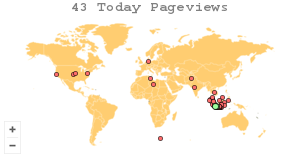STUDI LIVING QUR’AN: ANALISIS TRANSMISI TEKS AL-QUR’AN DARI LISAN KE TULISAN
DOI:
https://doi.org/10.47498/bashair.v2i1.889Keywords:
Qur’an, Transmission, Oral-Writing TextAbstract
This paper tries to explore the scope of the study of living quran and analyze the transmissions that occur in the al-Qur'an text from spoken to written. In general, many previous writings have provided research results related to the living Qur'an study. However, this paper comes with a focus on the process of transmitting the al-quran text from speech. There are at least three large groups of studies on the study of the Qur'an. First, research that places the Qur'an as the object of research. The second is research on the reading results of the Qur'anic text, both in the form of interpretive theories and in the form of exegetic thinking. The third is research that examines social responses or attitudes towards al-Qur'an or the results of reading al-Qur'an. The process of transmitting the Koran is marked by oral and written traditions that have existed since the time of the Prophet Muhammad. This tradition continued from the time of the Prophet to the time of the Caliph Uthman bin Affan, who was the peak of the historical chain of transmission of the Qur'an.
References
AB.Pasinringi, A. A. (2012, April). Al-Qur’an: Pertentangan Antara Teks dan Konteks. Jurnal Piramida: Media Studi Islam dan Timur Tengah, 7(1), 24.
Amin, M. (2004, Oktober). Sistematika Turunnya Ayat-Ayat Al-Qur’an Sebagai Pola Gerakan Dakwah. Jurnal Communica , 2(2), 84.
Arif, S. (2005). Al-Qur’an, Orentalisme dan Luxenberg. Jurnal AFKAR, 64.
Baharuddin, M. A. (2015, Juni). Konsep Pewahyuan Al-Qur’an Menurut Stefan Wild (Revelation Concept of the Koran by Stefan Wild). Jurnal Suhuf, 8(1), 168.
Baidan, N. (2016). Wawasan Baru Ilmu Tafsir. Yogyakarta: Pustaka Pelajar.
Barizi, M. M. (2017, Juni ). Implikasi Sejarah Transmisi al-Qur’an Terhadap Kerja Orientalis. Millati, Journal Of Islamic Studies and Humanities, 2(1), 66.
Daulay, M. R. (2014). Studi Pendekatan Al-Qur’an. Jurnal Thariqah Ilmiah, 1(1), 33.
HS, M. A. (2019, Desember). Verbalisasi Al-Qur’an dan Nilai Pancasila Legitimasi Surah Al-Ma’idah 5/;49”. Jurnal Ṣuḥuf, 12(2), 332.
Huda, I. S. (2018). Perinsip Dasar Perolehan Makna Dalam Perspektif Ulama Fiqih. Prosiding Konferensi Nasional Bahasa Arab IV, (p. 555). Malang.
Ilyas, Y. (2017). Kuliah Ulumul Qur’an. Yogyakarta: ITQAN Publishing.
Khoeron, M. (2010). Kajian Orientalis Terhadap Teks dan Sejarah Al-Qur’an. Jurnal Suhuf, 3(2), 236.
Kholis, N. (2019, Juni). Objek Baru Kajian al-Qur’an: Studi Motif Hias Putri Mirong Pada Bangunan Kraton Yogyakarta. Jurnal Aqlam, 4(1), 96.
Masduki, Y. (2017, Juni). Sejarah Turunnya Al-Qur’an Penuh Fenomenal (Muatan Nilai-Nilai Psikologi Dalam Pendidikan). Jurnal Medina-Te, 16(1), 40.
Mattson, I. (2013). Ulumul Qur’an Zaman Kita. (C. L. Yasin, Trans.) Jakarta: Zaman.
McAuliffe, J. D. (2006). The Cambridge Companion To The Qur’an. Cambridge: Cambridge University Press.
Muhammad, F. (2021, Januari-Juni). ASBAB AN-NUZUL: Melacak Skala Mikro Konteks Kesejarahan Al-Qur’an. Jurnal al-Fath, 15(1), 71.
Muhith, N. F. (2016, Desember). Keraguan Seputar Mushaf Al-Qur’an Kajian Resepsi terhadap Manuskrip Birmingham. Jurnal Ṣuḥuf, 9(2), 219.
Munawir. (2018, Juli-Desember). Problematika Seputar Kodifikasi Al-Qur'an (Sebuah Kajian Kesejarahan Perspektif Kesarjanaan Muslim dan Analisis Kritis Kesarjanaan Barat)”. MAGHZA: Jurnal Ilmu Al-Qur’an dan Tafsir, 3(2), 150.
Putra, H. S. (2012, Mei). The Living Qur’an: Beberapa Perspektif Antropologi. Jurnal Walisongo, 20(1), 238.
Schoeler, G. (2006). The Oral And The Written In Early Islam. Routledge: University of Cambridge.
Suriani, E. (2018). Eksistensi Qur’anic Centre dan Ekspetasi Sebagai Lokomotif Living Qur’an di IAIN Mataram. Jurnal Penelitian Keislaman, 14(1), 5.
Zaid, N. H. (2016). Tekstualitas Al-Qur’an. (K. Nahdliyyin, Trans.) Yogyakarta: IRCiSoD.
Zarkasyi, H. F. (2011, April). Tradisi Orientalisme dan Framework Studi al-Qur’an. Jurnal TSAQAFAH, 7(1), 15.
Downloads
Published
Issue
Section
License
Authors who publish articles in Basha'ir: Jurnal Studi Al-Qur'an & Tafsir agree to the following conditions:
- The author retains copyright and grants the Basha'ir Journal the right from the first publication with the work simultaneously licensed under a Creative Commons Attribution-ShareAlike 4.0 International (CC BY-SA 4.0) license that allows others to make changes, adjust and build on the work with recognition of the author's work and initial publication in the Journal.
- Authors are allowed to copy and redistribute published versions of works in journals (for example, posting them to institutional repositories or publishing them in a book), with recognition of their initial publication in Basha'ir: Jurnal Studi Al-Qur'an & Tafsir.
- Authors are allowed and encouraged to post their work online (for example, in institutional repositories or on their websites) before and during the submission process, as it can lead to productive exchanges, and increase citations of published works






